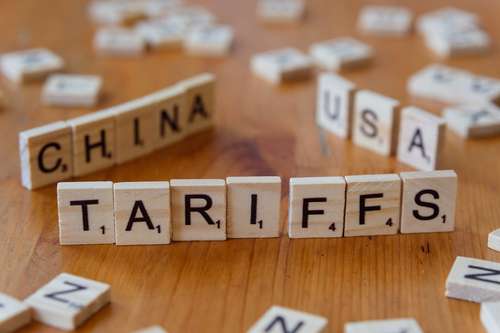In immigrant-heavy towns, once bustling with life and laughter, an uneasy silence now hangs in the air. The news of Trump’s mass deportation plan has sent chilling ripples of fear sweeping across communities, workplaces, and homes.
Imagine it: Maria, a mother of two, wakes up to the news of the sweeping deportation orders while sitting at her kitchen table. Her hands tremble as she reads the reports.
She glances toward her children, who chatter innocently over breakfast, and wonders: Will we still have a home tomorrow? Will my husband disappear before dinner? In their small town, others feel the same—workers avoiding the main roads, kids refusing to go to school, employers quietly looking around and wondering who won’t show up for work today.
What’s Driving Trump’s Mass Deportation Plan?

A group of immigrants during the Immigration Reform Rally 2015 | Yay Images
The immigration policy of president-elect Donald Trump has long centered on removing undocumented immigrants from the U.S. His mass deportation agenda—intensified in speeches and media appearances—comes from a belief that undocumented workers have hurt the economy and national security. Trump’s rhetoric promises to “protect American jobs” and “restore order” to a fractured immigration system.
This isn’t the first time sweeping deportation policies have been considered in U.S. history. In the 1950s, Operation Wetback resulted in the deportation of over one million Mexican workers.
While it was hailed as a success by some at the time, history paints a different picture—families were torn apart, labor shortages crippled agriculture, and the policy left a bitter legacy of pain and distrust.
Today, businesses fear that history might repeat itself, but on an even larger scale.
The Business Fallout: Who Will Feel the Hit First?
If Trump’s mass deportation plan moves forward, industries across the U.S. will feel the shockwave—immediately.
Take agriculture, for instance. A significant chunk of America’s farm workers are undocumented immigrants, and their role in putting food on our tables is irreplaceable. California farmer Manuel Cunha, speaking to the media, bluntly stated:
“If you took away my workforce, you wouldn't eat. If you go into the San Joaquin Valley and start doing what you're saying, it's over.”
- Agriculture: Crops will rot in fields without enough hands to harvest them, and prices for fresh produce will spike.
- Construction: Major projects could stall indefinitely as companies struggle to fill positions requiring skilled labor.
- Restaurants and Hospitality: Chefs, dishwashers, and housekeepers—often the backbone of these industries—might vanish, leaving restaurants and hotels unable to operate fully.
A Sickly Atmosphere in Workplaces

The construction industry relies heavily on immigration workers | Yay Images
Businesses that rely on immigrant labor are no longer just workplaces—they’re becoming quiet, fearful spaces. Employers whisper about how they’ll fill shifts if ICE raids become the norm. Workers, whether documented or not, are nervous. Absenteeism is rising; trust is falling.
Mr. Bautista, a Mexican immigrant who left his country at the age of seven, said in an interview:
"I don't think I've ever felt this way, even after more than 20 years here. It feels like we're at a turning point, a new wave of nativism like those I teach about.
"It's just a future of fear and uncertainty for us."
Entire communities are affected. In neighborhoods where immigrants once played a major economic and cultural role, small businesses—from bakeries to laundromats—are closing their doors as customers disappear.
What Can Businesses Do—Right Now?
Businesses face an immediate dilemma: how to brace for the storm while keeping operations afloat and supporting their employees. While long-term solutions like automation and workforce restructuring will take time, there are immediate steps leaders can take:
- Conduct Workforce Assessments: Identify the roles most at risk and plan for short-term disruptions. Cross-train employees to ensure essential tasks are covered.
- Strengthen Community Ties: Partner with local organizations to provide legal aid and resources for at-risk employees. Offering support can boost morale and loyalty.
- Speak Out: Advocate for humane immigration policies through industry groups and chambers of commerce. Silence will only deepen the fear among workers.
- Temporary Solutions: Work with staffing agencies to bring in temporary workers. While it’s not perfect, it can offer relief in critical moments.
The reality is that these steps won’t solve the root problem. But taking action now can soften the immediate blow for businesses and employees alike.
What About the Immigrants Themselves?
For undocumented immigrants, the situation is even more urgent. Legal experts recommend that individuals and families:
- Know Your Rights: Familiarize yourself with your legal rights if approached by ICE officers. Resources like the ACLU provide free, accessible guides.
- Seek Legal Aid: Connect with immigration attorneys or advocacy organizations that offer pro bono services.
- Create Safety Plans: Families should create emergency plans, including financial arrangements, guardians for children, and essential documentation.
In communities, grassroots groups are mobilizing to provide resources, from legal workshops to mental health support, as the anxiety grows.
A Larger Conversation: The Moral and Economic Impact

A Hispanic female worker at a restaurant | Pexels
Trump’s mass deportation plan isn’t just about numbers—it’s about humanity. The economic costs are staggering (estimates place mass deportation expenses in the billions), but the emotional toll is far greater. Communities will fracture. Trust between workers and employers will shatter. Children will grow up without their parents, and businesses will lose the very people who kept them running.
The irony? Many businesses argue that undocumented immigrants do not take American jobs—they perform the jobs that few others are willing to take. From farms to factories, these workers sustain industries that are vital to the U.S. economy.
Final Thoughts: What’s the Path Forward?
The fear hanging over immigrant families, businesses, and entire communities is real. Trump’s immigration policy may promise economic renewal, but at what cost? History teaches us that mass deportations leave scars that take generations to heal—on economies, on communities, and on people.
As businesses scramble for solutions and immigrant workers face an uncertain future, this moment calls for reflection. Is there a better path forward? How can businesses and policymakers work together to address immigration challenges without sacrificing humanity?
One thing is clear: the consequences of Trump’s mass deportation will reverberate far and wide. And as the dust settles, the question remains—how do we ensure that businesses, families, and communities can thrive in a way that benefits everyone?




